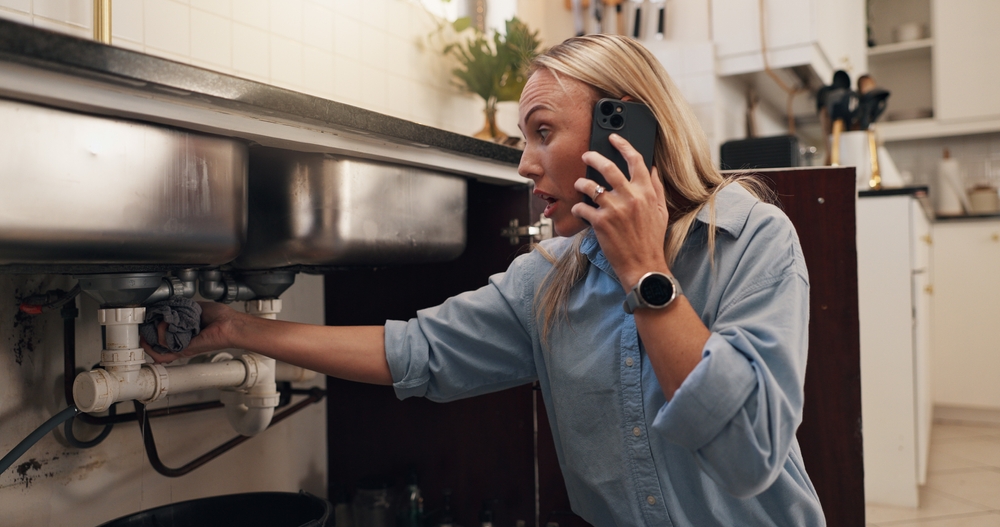
Does it ever feel like your home is a financial black hole? You get paid, you pay the mortgage, and the rest just vanishes. This is a common feeling. Often, the problem is not a lack of income. Instead, the problem is a series of small, costly household mistakes. These habits quietly drain your bank account. Consequently, they invite financial strain into your life. The good news, however, is you can fix them, starting today.
1. Ignoring “Minor” Maintenance
That tiny drip under the sink seems harmless. Similarly, that rattling sound in the HVAC unit is just annoying. Ignoring these small issues, however, is a massive mistake. Small leaks quickly become big floods. A struggling air conditioner, for example, will fail on the hottest day. This “deferred maintenance” turns a $50 fix into a $5,000 replacement. Therefore, you must address small problems immediately. It is the cheapest insurance you can buy.
2. Living Without a Clear Household Budget
Many families operate without a budget. They just “wing it.” Unfortunately, this is a recipe for financial strain. A budget is not a restriction. Rather, it is a plan. It is you telling your money where to go. For this reason, you must know exactly where your money is going. Track your spending for one month. You will be shocked. Then, assign every dollar a job. This is the only way to plug the leaks.
3. The “Lifestyle Creep” of Subscriptions
That $9.99 subscription seemed cheap. But now you have ten of them. Streaming services, software, and delivery apps add up. This is “subscription creep.” So, audit your bank statement right now. Find every recurring charge. Ask yourself: “Did I use this in the last month?” If not, cancel it. This one step can free up hundreds of dollars a year.
4. Overspending on Groceries (And Food Waste)
The grocery store is a major budget-breaker. For instance, we shop without a list. We also shop hungry. This leads to buying items we already have. Worst of all, we waste food. Throwing away spoiled produce is throwing away cash. Instead, plan your meals for the week. You should also make a strict list. Finally, “shop” your pantry first. This simple habit cuts food bills significantly.
5. Relying on Credit for Small Emergencies
The dishwasher breaks. So, you put the repair on a credit card. This is a dangerous cycle. In fact, it turns a $300 problem into a $400 problem with interest. This is a sign you have no emergency fund. A household must have a cash cushion. Start with $1,000. This buffer breaks the cycle of debt. Ultimately, it stops a small problem from becoming a financial crisis.
6. Keeping “Energy Vampire” Appliances
Your old, inefficient refrigerator might be costing you. Old appliances, known as “energy vampires,” consume huge amounts of electricity. Consequently, your electric bill is a major source of financial strain. Therefore, look for Energy Star-rated appliances. Also, replace incandescent bulbs with LEDs. Finally, insulate your attic. These changes pay for themselves over time.
7. Using “Buy Now, Pay Later” for Wants
Services like Afterpay and Klarna are tempting. Specifically, they let you buy new furniture or electronics for “four easy payments.” This is a trap. It normalizes debt for non-essential items. If you cannot afford to buy a new sofa with cash, you cannot afford it. These services make you feel rich. In reality, however, they are keeping you poor by stealing from your future self.
8. Not Having a Sinking Fund for Big Repairs
An emergency fund is for unexpected issues. A sinking fund, in contrast, is for expected issues. You know you will need a new roof eventually. You also know your car will die. A sinking fund is a separate savings account. Each month, you “pay” it a small amount. Then, when the big bill comes (and it will), you pay it in cash. This eliminates the panic.
A Peaceful Home Starts with a Financial Plan
Your home should be a place of peace, not a source of stress. Thankfully, these household mistakes that invite financial strain are correctable. It starts with being intentional. First, create a budget. Next, prioritize maintenance. You must also build a cash buffer. Taking control of your household finances is the ultimate act of self-care. Ultimately, it builds a foundation of stability for you and your family.
Which of these household mistakes hits closest to home for you? Let’s talk about solutions in the comments.
What to Read Next…
- 8 Forgotten Household Items That Sell Big on eBay
- 6 Innocent Household Items Burglars Always Look For First (And Why You Should Hide Them)
- 8 Genius Places To Stash Cash In Your House That Burglars Will Never Find
- 9 Dirty Places Only Visitors Find in Your House
- 6 Eerie Signs Strangers Are Watching Your House
The post 8 Household Mistakes That Invite Financial Strain appeared first on Budget and the Bees.







